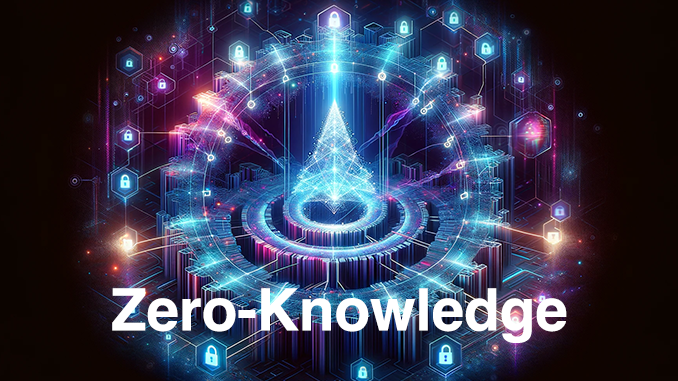
You hear more and more about ZK solutions in the crypto scene, which is short for “zero-knowledge”. We explain how ZK works and why this technology is important.
Anyone who has been working intensively with cryptocurrencies such as Ethereum (ETH) or Cardano (ADA) has certainly come across the technical term zero-knowledge proof (ZK) in the last year. This is because ZK solutions are seen as one of the cornerstones for making broad-based use cases for Ethereum and other cryptocurrencies more attractive. The starting point: when agreements are made in the crypto world, contractual partners should be able to prove their qualifications without unnecessarily disclosing personal information.
You are probably familiar with everyday examples such as a bank debit note. Here, a merchant wants to know for sure that an account is sufficiently covered – but the account holder does not want to transmit their exact account balance. CC solutions in the crypto industry tackle this challenge in their own way. They automatically check whether a deal has been concluded. In the background, they check whether the information transmitted is correct and request certificates. The ZK module therefore has snippets of information that should prove that contractual partners are honest. This information is sufficient to show that a check comes from a qualified body. And the credit reference agency only has to confirm or reject this without disclosing any further information.
A typical use case for CC solutions is financial privacy. This is because the blockchains of Ethereum and the like document transactions predominantly publicly. ZK modules can be used to restore at least partial anonymity here, which suits decentralized finance (DeFi). However, DApps from blockchain gaming to Metaverse are also used on the web3, where, for example, proof of age can be provided using zero knowledge. Last but not least, ZK solutions relieve the burden on blockchains because they reduce the amount of data required to validate a transaction.
The first ZK solutions that can be connected to the Ethereum Virtual Machine (EVM), the standard module for smart contracts, were launched in the crypto year 2023. zkSync was a pioneer, while Polygon (MATIC) was able to attract prominent figures for the launch of its zkEVM shortly afterwards with Ethereum inventor Vitalik Buterin. A ZK module is being tested at BNB as well as at Cardano.
Conclusion: Zero knowledge marks future viability for crypto
ZK solutions are not yet generating billions in sales. However, this is likely to change quickly, as they address existing challenges such as the balance between privacy and reliability. In the crypto year 2024, competition is expected to intensify as to which ecosystems integrate zero-knowledge proofs in a user-friendly way and at low fees.

Leave a Reply